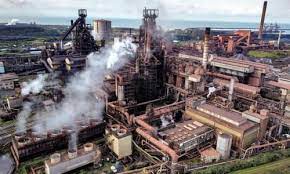UK officials recommend extending post-Brexit steel quotas

London: Whitehall officials have recommended extending post-Brexit steel quotas – a development that will come as a relief to the British steel industry, which had feared a rise in imports.
The “steel safeguards”, which were due to expire at the end of June, were first brought in by the EU in 2018, which feared that countries such as China would dump excess steel on the market after sales to the US were blocked by Donald Trump.
The UK copied the safeguards when it left the EU, and extended them in 2022 in an effort to protect domestic producers from the overflow.
The business secretary, Kemi Badenoch, will have the final say over whether the government continues to intervene in the steel market, after civil servants at the Trade Remedies Authority (TRA) recommended it.
Another extension would mean the UK steel industry would be protected from a flood of imports until June 2026, when they would expire under World Trade Organization rules. The UK industry or government must then apply for new measures from 2026.
The UK steel industry is under pressure, amid a global recession in demand which has left steelworks across the world looking for customers to take up their spare capacity. At the same time, Britain’s two remaining primary steelworks – Tata Steel’s at Port Talbot and the Chinese-owned British Steel plant at Scunthorpe – have announced expensive plans to close their blast furnaces and switch production to cleaner electric arc furnaces.
Sales of the products covered by the safeguards account for about 84% of five UK producers’ £5bn turnover, the TRA said. Under the safeguards, the UK would impose tariffs on 15 categories of steel products if imports rise above set quotas.
Badenoch has previously expressed her distaste for government intervention, although as business secretary she has signed off on £500m in state aid for Tata’s shift to electric arc furnaces. Tata in January confirmed that it would push ahead with the plan, which will result in the loss of 2,800 jobs.
Gareth Stace, the director general of UK Steel, a lobby group, said: “The TRA’s recommendation is a huge relief for the steel sector, knowing that we are one step closer to retaining this vital measure for another two years.
“UK Steel is delighted that the TRA has recognised that steel safeguards are more than ever necessary to shield the UK from the inevitable trade diversion of all the surplus material that will be shut out of other key markets.”
UK Steel figures suggest that global steelmakers have more than 630m tonnes of overcapacity, 60 times the size of the UK market.
“Even a small proportion of this steel being diverted to the UK would completely overwhelm our market,” Stace said.





